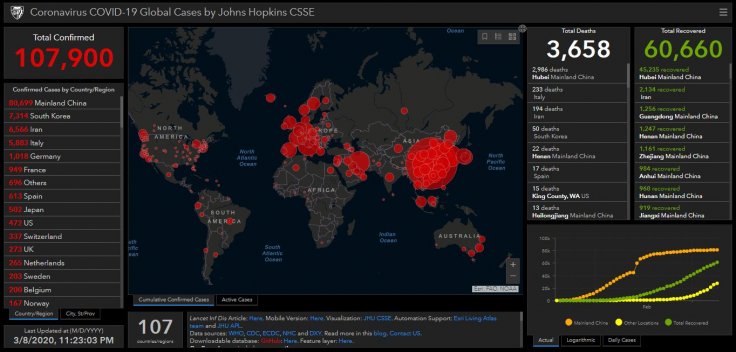When three US experts were asked at Harvard's Kennedy School of Government to comment on coronavirus, their common perception was that it was not unexpected but emergency situation that it has posed to healthcare specialists was unprecedented in the last 50 years of history.
"It's the most daunting virus that we've contended with in half a century or more," says veteran epidemiologist Michael Mina from Harvard's T.H. Chan School of Public Health, participating at a panel discussion. Helen Branswell, a health reporter and writer on infectious diseases and public health since the 2003 SARS outbreak, echoes similar views when she said that the situation was bizarre.
Expected but unprecedented
"It's bizarre but I find myself startled. Having written about the possibility of something like this for years, I still find myself really startled that it's happening, and I don't know why that is." Recalling her coverage of 2014 Ebola virus, she said she never worried about its spread in city she lived in as the outbreak was mostly confined to West Africa. "It's different now," she warns.

The situation is on the verge of becoming a pandemic despite opposition from several government to declare it one. The COVID-19 is different from other viruses or influenza, as there are no drugs to stop it or no vaccines to prevent it. Unlike other flu strains to which the humanity is exposed to and become immune, here is a new strain which the human race is never faced nor will it build immunity soon.
"We have an entirely susceptible population. The potential for this to burn through a population very quickly is very high," said Mina. explaining that the saving grace of the virus is that it doesn't seem to be impacting children or young, but the mortality rate for those above 80 years old very high at 15% or more.
Social fabric rattled
Beyond the health emergency, the coronavirus has been daunting the very social fabric of our society, said another panelist Juliette Kayyem of the Kennedy School's homeland security program and a former homeland security official herself. "It's here, there are going to be massive disruptions to our social fabric in terms of your day to day." Unlike a natural disaster or terrorist attack, where there's a boom moment, here's a virus which is silent but spreading before causing panic situation.

Taking aim at the privatization of health care beyond boundaries, Mina explained that taking a flu shot would have left emergency health care to focus on coronavirus but the situation is unmanageable already. Blaming the fragmented US health care system, he said the major concern is that there is no cohesion of a response.
"I don't want to sound defeatist here, but the state of our health care system, the way we have privatized everything about it for the most part, is going to seriously impact our ability... we have no ability to create out of the blue new hospital beds. We can't even test appropriately."
Are we prepared?
The swift response in China, owing to its state-owned health care system, was able to confine the virus to Wuhan for long but the same is not even remotely replicable in the US, reminded Mina. "They truly bought the rest of the world at least a month. The US wasted it, in my opinion, but many countries did not."
Kayyem agreed that there was a pause in the initial US response, especially on the preparedness side. pointing out that school-closings have started when the outbreak is very much spreading everywhere. "How do we make up for lost time?"
Branswell listed the worst-affected people in the fight against the virus. "I'm really concerned about people living in long-term care facilities. If this virus gets into long-term care facilities, it will be really bad. I'm worried about people who stay in homeless shelters. I'm worried about people who work in retail. I'm worried about people who don't have the money to stockpile food because they don't have extra money."









